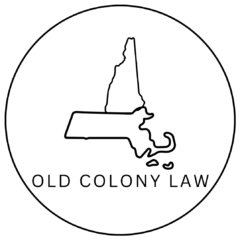This white paper discusses some of the ways in which traditional charitable giving may be bolstered with political-oriented giving.
Political Philanthropy During Life and After Death
As politics continue to impede policymaking and Congress removes charitable giving incentives from the federal Tax Code, philanthropy is increasingly being conducted with a political calculus. Although political gifting does not yield the charitable deductions that translate into lower tax obligations, there are indeed tax incentives associated with political-oriented gifting.
You may also be surprised to learn that you can plan for post-death political contributions and even establish a trust to ensure your preferred political party or candidates benefit from your support during the election cycle in which you die – and beyond.
POLITICAL CONTRIBUTIONS DURING YOUR LIFETIME
There is a federal tax imposed on gifts over a certain threshold amount (currently, a donor may give up to $18,000 per recipient per year, periodically adjusted for inflation). Although the government’s definition of “gift” is quite broad, it does provide for some exceptions. For example, just as gifts to a qualified charitable organization are exempt from gift tax, there is no gift tax on contributions to a political organization or 501(c)(4) social welfare organization.
Political organizations are often subject to contribution limits that are below the gift tax threshold anyway, but contributions to certain organizations like 501(c)(4)s and federal super PACs are unlimited. This opens the door for major tax-free gifting opportunities. You can’t gift more than $18,000 to your child in a year without encountering tax implications, but can give large sums to a 501(c)(4) or super PAC without any gift tax implications!
What’s more, unlike liquidating or selling appreciated property such as stocks or other securities, contributing them to a 501(c)(4) will avoid triggering a capital gains tax.
CONTRIBUTION FROM ESTATES AND TESTAMENTARY TRUSTS
Federal campaign finance regulators view both an estate and a testamentary trust (a trust incorporated into a will and established upon the death of the decedent) of a deceased individual to be successor legal entities to that deceased individual, effectively allowing you to plan for post mortem campaign contributions.
If you decide to incorporate political contributions into your estate planning documents, your estate or trust would then be subject to the same limitations and prohibitions on contributions that were applicable during your lifetime. For example, if you make the maximum allowable contribution to your preferred national political party (currently $41,300 per year), your estate would then be ineligible to contribute to that same party in the same year.
The drafting of wills and trusts should be done in a manner that not only complies with current law, but also, to the extent practicable, anticipates future changes to the law, such as inflationary adjustments to contribution limits.
State and local campaign finance laws are not always in harmony with federal campaign finance laws. For example, federal law permits political contributions from trusts and estates, but Massachusetts law expressly prohibits such contributions.
POLITICAL CONTRIBUTIONS FROM LIVING TRUSTS
An individual with a living trust (oftentimes referred to as a revocable trust) may make federal political contributions from assets held by the living trust. Since an individual associated with a living trust retains complete control over the use of the funds in the trust, any contributions made in this manner count towards the individual’s contribution limits. Therefore, you cannot circumvent your contribution limits by making maximum contributions both individually and from your living trust.
POLITICAL CONTRIBUTIONS FROM IRREVOCABLE TRUSTS
After the 2022 elections, federal regulators issued an opinion in which it viewed irrevocable trusts similar to estates and testamentary trusts: that they are successor entities to an individual and, therefore, permissible contributors to federal political committees. However, the law surrounding of campaign contributions from irrevocable trusts is still unsettled.
Regulators have ruled that the attribution of a contribution to a federal political committee from an irrevocable trust is dictated by the amount of discretion that the trustee has. For example, if the trustee is permitted under the terms of the trust to exercise broad discretion in making contributions, the contribution should be attributed to the trust only. On the other hand, if the trustee is obligated under the terms of the trust to confine contributions to designated recipients or make decisions under objective criteria set forth in the trust, then the contribution should be attributed to both the trust and the grantor.
